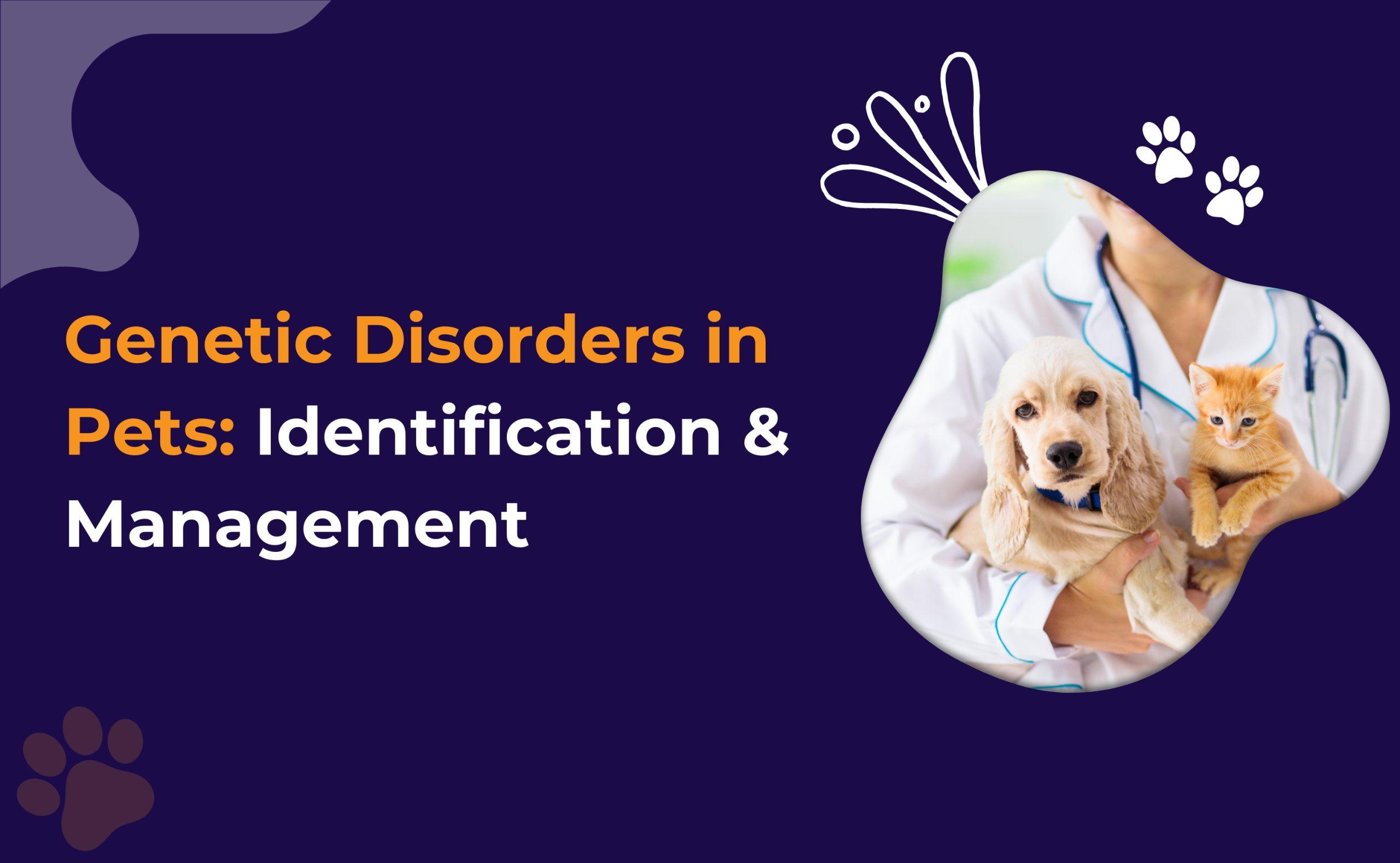Bringing a pet into your home is a fulfilling experience, but ensuring their long-term well-being requires an understanding of hereditary health conditions. Just like humans, dogs and cats can inherit genetic disorders that may impact their quality of life. Identifying, diagnosing, and managing these conditions can help pet owners provide the best pet health care for their furry companions.
Here’s everything you need to know about genetic disorders in pets and how to manage them effectively.
Introduction to Genetic Disorders in Pets
Genetic disorders in pets are inherited conditions that are passed down through generations due to mutations in their genes. These disorders can affect their metabolism, skeletal system, or overall health. While some hereditary conditions are mild and manageable, others may require ongoing veterinary hospital care and intervention.
Understanding which breeds are predisposed to certain conditions can help pet owners take preventive measures and seek early pet health care interventions.
Common Hereditary Conditions in Dogs and Cats
Different breeds have unique genetic predispositions to specific health issues. Here are some of the most common hereditary disorders:
Hereditary Disorders in Dogs
- Hip Dysplasia – A skeletal condition that affects large breeds like Labrador Retrievers and German Shepherds, causing joint pain and arthritis
- Progressive Retinal Atrophy (PRA) – An eye disease leading to blindness, common in Golden Retrievers and Cocker
- Von Willebrand’s Disease – A blood-clotting disorder found in Doberman Pinschers and Shetland Sheepdogs
- Epilepsy – Seizures caused by inherited neurological conditions, commonly found in Border Collies and Beagles
Hereditary Disorders in Cats
- Polycystic Kidney Disease (PKD) – A genetic kidney disease that primarily affects Persian and Himalayan cats
- Hypertrophic Cardiomyopathy (HCM) – A heart disease that thickens heart muscles, seen in Maine Coons and Ragdolls
- Manx Syndrome – A spinal disorder affecting Manx cats, leading to mobility issues
- Deafness in White Cats – White cats with blue eyes have a higher risk of congenital deafness
Recognizing the Symptoms of Genetic Disorders
Because hereditary conditions develop over time, pet owners should watch for early warning signs that may require a visit to a veterinary clinic near you.
Common Symptoms Include:
- Mobility issues – Limping, stiffness, or difficulty getting up (common in hip dysplasia)
- Vision problems – Night blindness or bumping into objects (signs of PRA)
- Frequent infections – Recurring ear, urinary, or skin infections
- Seizures – Uncontrollable shaking or collapse
- Heart-related symptoms – Lethargy, coughing, or difficulty breathing (HCM in cats)
- Excessive drinking & urination – Possible signs of kidney disease (PKD)
If you notice these symptoms, contact the veterinarian for early diagnosis and treatment.
Diagnostic Approaches for Hereditary Conditions
Early diagnosis can improve treatment outcomes for pets with genetic disorders. Veterinary hospitals use various tools to diagnose hereditary conditions, including:
- Physical Examination – Checking joint movement, eye health, and overall physical condition
- Genetic Testing – Screening for breed-specific disorders
- X-rays & MRIs – Detecting skeletal abnormalities like hip dysplasia
- Blood Tests – Identifying blood-clotting disorders like Von Willebrand’s Disease
- Electrocardiograms (ECG) – Monitoring heart conditions in pets prone to cardiomyopathy
Genetic testing is particularly useful for breeders to prevent passing on harmful conditions through spaying and neutering practices.
Treatment and Long-Term Management Strategies
While genetic disorders cannot always be cured, many can be managed effectively with proper veterinary care.
- Medications & Supplements – Anti-inflammatory drugs for joint disorders, heart medications for cardiac diseases, and supplements for metabolic disorders
- Physical Therapy & Rehabilitation – Hydrotherapy and controlled exercise for pets with hip dysplasia or arthritis
- Dietary Adjustments – Special diets for kidney disease, low-fat diets for heart conditions, and weight management for joint health
- Lifestyle Modifications – Soft bedding, ramps, and reducing high-impact activities for pets with mobility issues
- Surgical Interventions – Procedures like joint replacement for severe hip dysplasia or removal of kidney cysts in PKD cats
For emergencies, having access to emergency vet services ensures that pets receive immediate care when needed.
Preventive Measures and Responsible Pet Breeding
Preventing genetic disorders starts with responsible breeding and proactive pet care.
For Pet Owners:
- Choose reputable breeders who conduct genetic screening
- Adopt from ethical shelters that screen for genetic conditions
- Schedule regular veterinary checkups for early detection
- Maintain a healthy weight to reduce stress on joints and heart
For Breeders:
- Conduct genetic screening before breeding
- Practice selective breeding to avoid passing on genetic disorders
- Educate pet owners on hereditary risks
Spaying and neutering also reduces genetic diseases by preventing inbreeding and controlling pet overpopulation. Visit a spay and neuter clinic near you to learn more.
Ensuring a High Quality of Life for Pets with Genetic Conditions
Pets diagnosed with genetic disorders can still lead happy, fulfilling lives with the right care. Palm to Paws, a trusted veterinary hospital, offers comprehensive pet health care to manage hereditary conditions and improve well-being
Comfort & Safety – Provide soft bedding, avoid slippery floors, and create a stress-free space. Our veterinary clinic near you can help assess mobility needs
Mental Stimulation – Interactive toys and puzzles enhance cognitive function, benefiting pets with neurological conditions
Regular Vet Visits – Early diagnosis and personalized treatment plans at Palm to Paws ensure optimal care. From pet vaccinations to spay and neuter services, we cover all aspects of preventive pet care
With expert veterinary care, comprehensive pet dental services, and advanced animal surgery options, pets with hereditary conditions can receive the support they need to lead healthier, happier lives.





